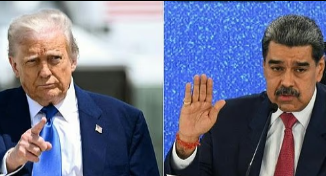
AP Photo/Andy Wong
| Published June 10, 2025
Three Chinese nationals recently caught attempting to smuggle biological materials into America
Amid rising tensions between Washington and Beijing, U.S. intelligence and military experts have raised urgent alarms about the extent of China’s operations within the United States. What was once dismissed as cold war-style paranoia is now being revisited with serious concern. From espionage to ideological influence, China’s strategies for penetrating American society are increasingly being acknowledged as complex, deliberate, and deeply embedded.
The Warnings From Military Leadership
General Jack Keane, a retired four-star U.S. Army General and frequent strategic analyst, has described China’s efforts as the most “comprehensive penetration of American society in our 250-year history.” In his recent interview on Fox Business, Keane outlined how Beijing’s tactics go beyond military confrontation. Instead, the Chinese Communist Party (CCP) is allegedly investing in long-term influence campaigns that include economic leverage, educational infiltration, cyber espionage, and access to critical U.S. infrastructure.
He explained that this isn’t a new phenomenon—but what’s new is the sheer scale and coordination of efforts. “This is not just about spy balloons or TikTok,” he said. “It’s about comprehensive access: from American corporations, to academia, to even political and cultural institutions.”
A Strategic, Multi-Domain Approach
Analysts and journalists like Ward Clark have pointed out that the CCP employs a multi-pronged strategy involving both overt and covert channels. These include:
-
Business and Corporate Influence: Chinese-owned firms and U.S. corporations with deep ties to China are viewed as key leverage points. Through joint ventures, intellectual property transfers, and ownership stakes, Beijing gains insight into critical U.S. technologies and economic trends.
-
Academic and Cultural Penetration: With programs like Confucius Institutes and exchange agreements, American campuses have become focal points for ideological influence, language acquisition, and sometimes even intelligence recruitment.
-
Cyber Operations: From data theft to infrastructure probing, China’s cyber units are increasingly seen as one of the most active and sophisticated threats in the digital space.
-
Media and Information Warfare: Through state-linked media outlets and partnerships, Chinese messaging can subtly influence U.S. public opinion and sow division on key political or social topics.
Broader Context: China’s Global Ambitions
These developments come amid China’s rapid expansion in global geopolitics. Its Belt and Road Initiative has expanded influence across Africa, Latin America, and Southeast Asia. Its military buildup in the South China Sea and alliance with nations like Russia further illustrate a pivot away from peaceful competition toward global strategic dominance.
In the U.S., bipartisan concern is rising over the extent to which China has been allowed to build economic and digital footholds within American systems. From farmland purchases near military bases to investments in AI research and pharmaceuticals, the picture that emerges is one of a long-term, well-resourced campaign to position China advantageously in every major sphere of American life.
Here are the implications of China’s growing influence in the United States, based on the military and intelligence warnings highlighted in the articles:
🔎 Implications
-
National Security at Elevated Risk
The scale of China’s infiltration—especially in areas like cybersecurity, infrastructure, and academia—suggests that America’s strategic vulnerabilities extend far beyond conventional military concerns. -
Erosion of Economic Independence
With U.S. corporations increasingly entangled in Chinese markets and supply chains, there’s growing concern about compromised decision-making and potential economic coercion. -
Political and Cultural Manipulation
China’s soft power strategies may influence U.S. policy, media narratives, and even university curricula—creating long-term shifts in public opinion and national priorities. -
Increased Bipartisan Scrutiny
Despite deep political divides, both parties may now face pressure to act against Chinese interference. This could result in a new wave of legislation targeting foreign ownership, academic ties, and data security. -
Potential for Escalation
As the U.S. responds to these threats—through sanctions, restrictions, or counterintelligence moves—tensions could escalate diplomatically, economically, and even militarily with China. -
Challenge to Civil Liberties
Efforts to counter foreign influence may spark debates over surveillance, academic freedom, and business regulation—raising questions about the balance between liberty and security.
🧭 Overall Takeaway:
China’s far-reaching campaign to influence and infiltrate American institutions is no longer speculative—it’s systematic, strategic, and deeply embedded. The U.S. must recognize that this is not just economic rivalry or diplomatic tension; it’s a full-spectrum challenge to national sovereignty, security, and cultural resilience. Complacency is no longer an option.
SOURCES: REDSTATE – Warning: US Is Now ‘Target One’ for China
FOX BUSINESS – Gen. Keane warns China conducting ‘most comprehensive penetration’ of US society in our 250-year history





Be the first to comment